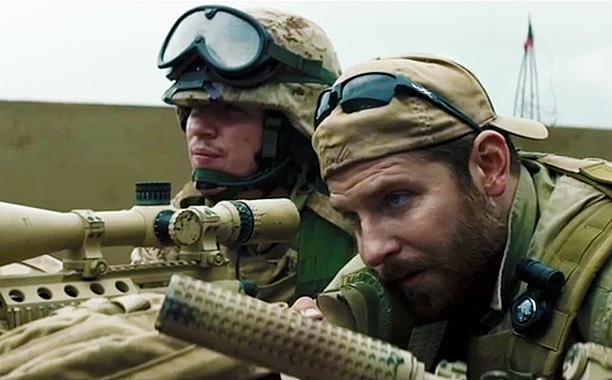Nick Amon-
On January 16, 2015, a new movie directed by Clint Eastwood entitled “American Sniper” was widely released nationwide. Starring actor Bradley Cooper, the movie is an autobiography depicting the life and military career of former Navy Seal Sniper Chris Kyle. Setting records for the highest opening attendance in the month of January, the film has sparked a large interest across the country in regards of Kyle’s life as the most lethal sniper in US history.
With roughly 160 kills confirmed by the Department of Defense, Kyle was quickly praised within the ranks of the Navy and grew to become one of the most famous snipers in history to live and tell their story. Deemed as the “Legend” throughout his career, Kyle served in the military from 1999-2009 and received numerous awards for his duties before he was honorably discharged from the Navy after his fourth tour.
On February 2nd, 2013, Kyle was killed by alleged murderer and veteran Eddie Ray Routh who suffered from PTSD. Kyle along with friend Chad Littlefield were attempting to help Routh with his transition into domestic normalcy when Routh shot and killed both of them at gun range in Erath County, Texas.
With the weekend box office sales through the roof, many have been able to take a step into the life of Kyle as Cooper attempts to convey the mannerisms and characteristics of the former Navy Seal Sniper before his life ended.
From pure silence, to tears and standing ovations, the film has received a great amount of success in its opening week and has grossed over $100 million within the first weekend of its wide release.
“Intense, man,” is what Vice President Joe Biden had to say in regards of the Oscar nominated film, approving of its moving nature and moments of suspenseful action and violence. But simply put, not all movie goers were impressed. ”Kyle, who at bare minimum, was a racist who took pleasure in dehumanizing and killing brown people.” This is what Guardian journalist Lindy West had to say of Kyle and the true character of his personality that she feels as if many Eastwood fans are blind to.
Filmmaker Michael Moore also decided to shed light upon the movie by tweeting “My uncle was killed by sniper in WW2. We were taught snipers were cowards. Will shoot u in the back. Snipers aren’t heroes. And invaders r worse.” Moore obviously identifying Kyle as the invader, afterwards received a significant amount of criticism regarding the tweet and his intention of questioning the US’s involvement in Iraq and Afghanistan beginning in the early 2000’s.
In defense of the controversy surrounding the new war hero film, Cooper spoke out against Moore and other critics by stating, “It’s not a political discussion about war, even..It’s a discussion about the reality. And the reality is that people are coming home, and we have to take care of them.”
It’s easy to transition the discussion regarding Kyle and his life portrayed on the big screen into an argument whether or not the US should’ve been involved so heavily in the Middle East over the past decade. But siding with the statement Cooper released to the press on the issue, not only is this distracting from the point of the film itself but it also begins to dilute the importance we hold towards our veterans in general.
The movie stresses in a significant manner that the reality of war and the transition from the battlefield back into the domesticated family life is a struggle of an extraordinary magnitude. With Kyle being murdered by an individual suffering from these tragedies of war, it’s not difficult to understand that for not only Kyle but for any soldier returning from the Middle East, the causes and effects of PTSD are real issues that require more attention in today’s society.
It’s only right that questions are asked regarding our nation’s involvement in the Middle East over the past several years. We all deserve answers and it’s our obligation to continue to seek for these answers as time progresses and our involvement across seas dwindles. But to target the character of a soldier whose job was to purely survive, defend his comrades, and uphold the overall structure of democracy we as Americans embody day by day, seems to be criticizing the acts of the puppet rather than those who are pulling the strings.






